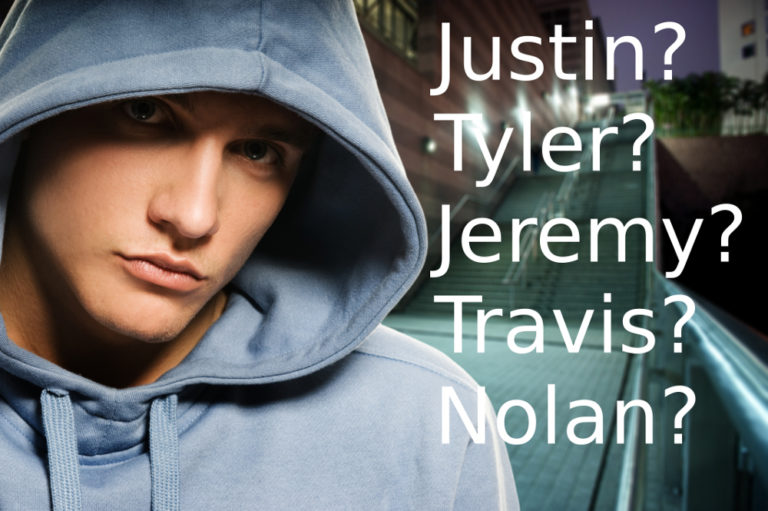 Some characters leap into my stories with all their details set. “Hi, I’m David Moretti, I’m six-foot-three, two hundred pounds, and I blame my mother’s Italian cooking.”
Some characters leap into my stories with all their details set. “Hi, I’m David Moretti, I’m six-foot-three, two hundred pounds, and I blame my mother’s Italian cooking.”
Other guys appear without as much clarity, and I have to gradually learn who quiet John is, and figure out his last name. And some are just a voice, a presence with a story and a personality, but no name, as the writing begins for me.
Back when I wasn’t publishing my stories, finding names was easier – I winged it. But now that other people read my books, I have a few processes I go through to name my characters.
First, I remind myself to avoid names I’ve already used for a main character. (Sounds like that would be a no-brainer, but I’m getting to where I have to check my Goodreads blurbs sometimes, to remember all my MCs.) I also try to keep in mind the big books in my genre. I won’t call my guy Adrien, and I’ll probably never have a Ty or a Zane, most definitely not in the same book.
Then I look at the age of the character, and I may check some popular name lists for the year in which they were born. To me, this is especially important with older MCs and historical stories. If a character was born back in 1918, I probably won’t name him Jason. Not that it would be an impossible choice, but it was very low probability. Just as I’m not likely to name a modern 18-year-old character Herman (a top-70 choice in 1918.) Those “100 top names from the birth year” lists can be a great way to be reminded of a name that fits both character and story, that I don’t already have on the tip of my tongue.
Last names can be a challenge, but factors like ethnicity, initials, ease of pronunciation, and combination with the first name come into play. I like the Surnames in America database from Mongabay, where I can cruise through to find a “last name with F and two syllables” and see how rare or common it is.
Then it’s time to Google the resulting name for unfortunate associations. Sometimes a last name has that “Aha, perfect together” factor because I heard the combo before, somewhere forgotten. I don’t want to call my guy “Logan Robertson” and bring to mind a homophobic pastor. Or use Colin Farrell, and have an actor’s face and style fixed in readers’ heads by the second line of the book.
I then take a good look at the two (or three) main character names together. Two MCs with the same first initial can be are annoying, because the reader has to slow down and more carefully read the name each time, to not get confused. Occasionally that happens with names that are similar in other ways. You’d think “Bobby” and “Tommy” are different enough, but I found myself confusing them over and over in an otherwise good book I read.
And… after I’ve age-fit and last-name-verified, and two-guys-compared and written my story, still, every once in a while, I have to change a name after the fact. Once because a big author had just used the same two guys’ names paired together. Once because a “Dear Author” requester asked me to use a name for a freebie MC, and it fit that story better. Once because the guy just didn’t seem like a “Nick” after all – the character was softer than that name feels to me. (I got to use it later – Nick in Tracefinder has the right amount of edge.) It’s always interesting that after a name change, the character feels a little different to me, and the writing gets tweaked. We all carry our own name-associations in our heads. BTW, watch out for nicknames and initials when you do this. And do not use “Change All” without thinking it through.
Unless you want your character to shout, “Look out! It’s a tAndrew!” or drop a bAndrew on his foot, when you’ve ditched the name “Rick.”
So what’s in a name? Sometimes, a bit more calculation than I expected, to find just the right one for my characters.


I enjoyed reading this. Names in books are important to me as a reader. There have been a few times when I’ve read a blurb, and the main characters have (to me) outlandish names, and I scroll on by. :/
It’s also hard to enjoy a story if the characters’ names start with the same letter, as you mentioned. That really throws me out, and slows me down, spoiling the pacing.
It’s also important to have a name that I can easily pronounce. I struggle when I have to stop and wonder if I’m saying it right in my head. (I was so surprised the other day when I heard an Audible recording of Georgette Heyer’s book “The Grand Sophy”. I’ve been pronouncing Sophia’s name wrong for 40 years!)
Or maybe the narrator is wrong Audio does add a whole additional dimension, (especially with fantasy names.)
Audio does add a whole additional dimension, (especially with fantasy names.)
Really interesting post… I never thought about it, but of course, a Ty, Zane or Adrien would obviously remind me to someone else… Thank you for sharing this with us, Kaje!
Thanks <3 Yes, the risk with a familiar name is having readers mix their characteristics into your character, instead of seeing yours as an independent new person. Of course, we can't avoid every name Amy Lane ever used, but the most common and memorable characters in M/M I try to avoid (like Chase and Mackey). (And I just read "Captive Prince" and added "Laurent" to that list. )
)